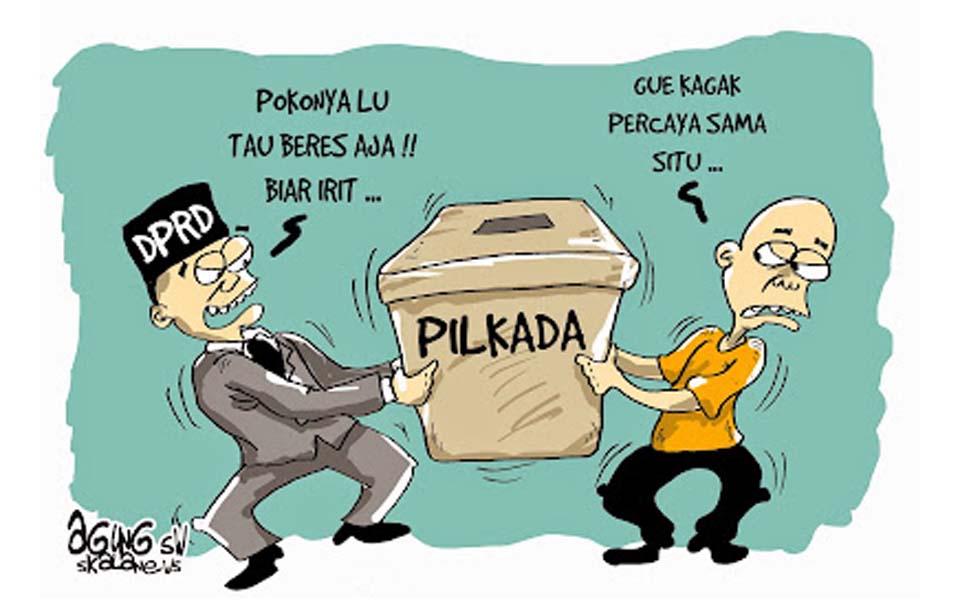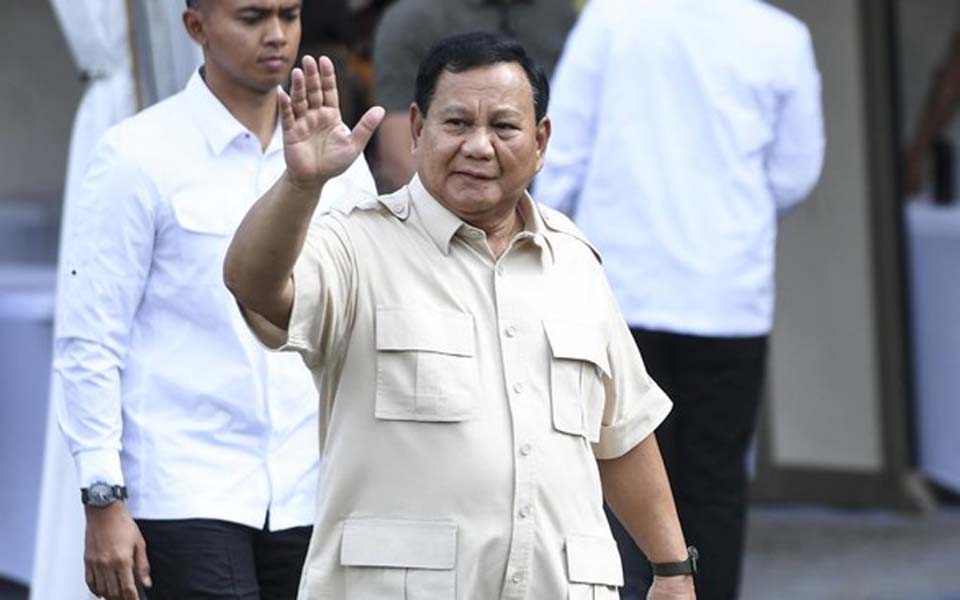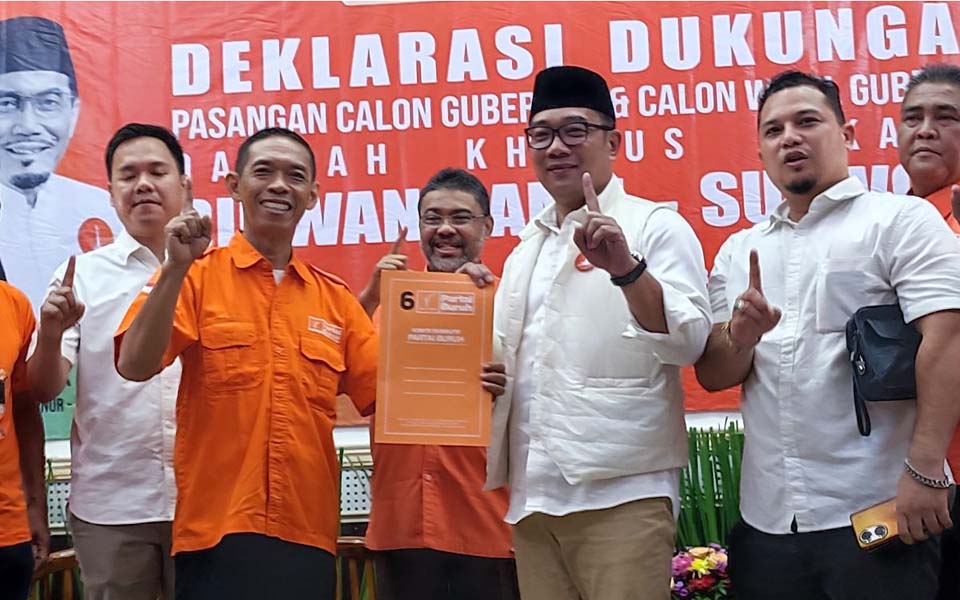Ihsanuddin, Jakarta – The politics doing the rounds these days can be referred to as "hating" the past and lacking a sufficient historical awareness, thus giving rise to the politics of gemoy, selepet and the Hunger Games.
Writer and chief editor of Narasi, Zen RS, has touched on the presidential and vice presidential candidates (capres-cawapres) running in the 2024 elections and the general symptom in politics of not wanting past issues to be brought up.
The remarks by Zen were conveyed when he attended the re-launch of the "Track Record" (RekamJejak.net) website belonging to Indonesia Corruption Watch (ICW) which is working with a number of other non-government organisations (NGOs) and Narasi.
The website provides the public with legislative candidates' history, including whether they are former corruption or general criminal convicts.
"Indonesian politics today is a politics that provides absolutely no place for memory", said Zen when speaking in the Sudirman area of Central Jakarta on Sunday November 26.
According to Zen, today's politicians only think about how to win the current election with the latest calculations.
They do not want politicians' history to be discussed by the public. He gave the example of a figure who does not like it if his involvement in identity politics is brought up.
Other candidates do not want the issue of the environmental permits they issued when they were governor to be discussed.
"[And] others don't want the abduction cases and their human rights violations to be repeatedly brought up", said Zen.
The other symptom of politics that hate the past is state institutions covering up the track records of candidates who are public officials.
An example of this is the very few political parties that allow their legislative candidates to reveal their curriculum vitae on the General Elections Commission (KPU) website.
According to Zen, this political phenomena, which is divorced from historical awareness, does not have no consequences.
"As a consequence of not having a historical awareness they don't of course have a perspective on the future", said Zen.
Zen took the opportunity to quote from a statement by British historian John Robert Seeley who said, “Politics without history has no roots; history without politics bears no fruits”.
"In the end history becomes just dates and an almanac. But politics and political science that does not provide a place for history in the end has no value", he said.
The senior journalist admitted that for him, politics without historical awareness is not a political act.
When he goes into a polling booth without any political awareness, for example, he feels that the action is nothing more than a routine activity.
"Indonesian politics today really needs historical awareness. Without this we will dissolve on what I said earlier, the politics of selepet, The Hunger Games and gemoy", said Zen.
Dark past and political gimmicks
When speaking of the past, the three presidential candidates who are now contesting the 2024 presidential elections are all seen as having black marks that cannot just be eliminated with political gimmicks.
The candidate running under the number 1 electoral ticket, former Jakarta governor Anies Baswedan for example, often faces the stigma of identity politics.
Many parties consider that Baswedan benefited from identity politics in the 2017 Jakarta gubernatorial elections. But this is denied by his backers.
Recently, Baswedan and his running mate National Awakening Party (PKB) Chairperson Muhaimin Iskandar have been widely discussed because of a selepet sarong video.
In the video uploaded by Baswedan on social media, Iskandar explains how to put on a sarong. Iskandar then snaps the sarong like a wet towel at Baswedan and the pair burst out laughing.
Meanwhile, presidential candidate number 2, Greater Indonesia Movement Party (Gerindra) chairperson and Defense Minister Prabowo Subianto has often been linked to past human rights violations. The former Army Special Forces (Kopassus) commander is said to be linked to the 1997-98 forced disappearance of pro-democracy activists.
Prabowo's younger brother, Hashim Djojohadikusumo, says that the cases linked to his brother are often discussed but have never been proven. However instead of Prabowo's past history being discussed, he is identified with gemoy.
Gemoy, which means gemas (to get carried away with, gush over, want to eat up), is usually directed at adorable young children. Prabowo's campaign team adopted the nickname capres gemoy after Prabowo did a "cute dance" in the middle of a speech that delighted the audience.
The use of the gemoy narrative was highlighted by several parties because it was seen as related to the political substance or the work program of the presidential and vice presidential candidates.
The head of the Prabowo Subianto and Gibran Rakabuming Raka election campaign team (TKN), Indonesian Chamber of Commerce and Industry (Kadin) Chairperson Roslan Roeslan, claims that the gemoy narrative emerged among the public organically.
"It wasn’t' us who made up the idea of gemoy, no. It grew organically from below and the interests of young people", said Roeslan following the official opening of the Prabowo-Gibran TKN Secretariat Headquarters in Menteng, Central Jakarta, on November 26.
Meanwhile presidential candidate number 3, Ganjar Pranowo, is a figure seen has having problems over environmental permits when he was Central Java governor.
Prabowo has attracted attention over issuing permits to establish a cement factory in Rembang and andesite rock mining in Wades, Purworejo, Central Java.
Recently however, he has been widely talked about over his use of the three-figured salute ala the film The Hunger Games in a video of Pranowo and his supporters uploaded on social media.
The film The Hunger Games tells the story of a rebel who fights against a tyrannical government.
- See: Graft watchdog ICW re-launches legislative candidate 'track record' website. Kompas.com – November 26, 2023
[Translated by James Balowski. Additional text was added to explain the origin of the "caleg gemoy" nickname. The original title of the article was "Gimik Kampanye Politik, dari "Selepet", "Gemoy", hingga Salam "Hunger Games"".]















